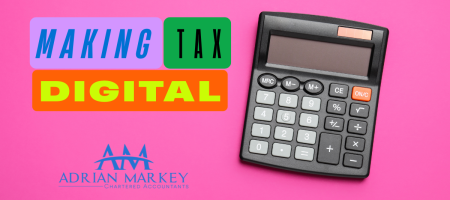So another 31st January deadline has been and passed. Your tax return is filed and the whole subject of tax can be ignored for another year.
Well, not quite. There are quite a few changes to Income Tax being introduced from 6th April 2016. Leaving everything until then means that you’re at the mercy of these new rules. If you act now however, you should be able to do some pretty minimal tax planning that could save you quite a lot of money.
If you have income from dividends, rental property or interest then these rules will affect you.
Dividends
For basic rate taxpayers, dividends were always a tax efficient type of income as they didn’t attract any further income tax (the thinking being that, as dividends came from the profits of a company, they had already been taxed before being paid). However, from 6th April, this changes.
Rather than attracting a notional 10% tax credit, dividends will instead have a £5,000 nil rate band, so the first £5,000 will be tax free). The excess will then be taxed at 7.5% for basic rate taxpayers, 32.5% for higher rate taxpayers and 38.1% for those in the additional rate band.
With just over two months to go until the new tax year, and the new rules, you are best to bring forward any dividends and utilise all of your basic rate band. Be careful though – there had been talk of the Chancellor introducing anti-avoidance legislation in anticipation of this. If you are considering bringing forward dividends, make sure you prepare all the necessary paperwork – minutes of the meeting, management accounts etc.
And don’t forget to look at dividends in the context of your total income. Dividends are always the last “slice” of income to be taxed so will attract the highest rate if there are other earning in the mix.
Rental Income
HMRC appear to have a particular grudge against landlords at the minute. A number of new changes to the rules around rental income mean one thing – more tax to pay!
Firstly, the 10% Wear & Tear allowance is to be abolished. This allowance allowed landlords to take 10% of their rental income off their profits as a deduction for the wear and tear of furnishings regardless of whether or not the actually incurred any expense in this respect (or even if they incurred more than the allowance).
From 6th April this will be replaced with 100% relief for the full replacement cost of furnishings. It is still the case that there is no relief for the first furnishing of a rental property.
So, it would follow that, if you are a landlord and are considering replacing any furnishings in your property, hold off until 6th April. You will still get the 10% W&T allowance in the current year and then get full tax relief on the full replacement cost in the 2016/17 tax year.
If you are a landlord who pays tax at the higher 40% rate, then there is more bad news for you. From 7th April 2017 your tax relief in respect of mortgage interest is going to be restricted to 20% tax relief whereas at the minute you will be getting 40% or possibly even 45% relief. This is being introduced on a phased basis between 2017/18 and 2020/21 tax years. Taken together with an expected increase in interest rates in 2017, landlords are certainly going to find themselves more out of pocket than before.
Rent A Room Relief
This tax relief has been around for ages and hasn’t changed in ages either. In fact, it has been 18 years since it has been increased. At present, you can rent a (furnished) bedroom in the house you live in for up to £4,250 per year and no income tax is payable. From 6th April 2016, this increases to £7,500. So income up to this level, whether from a lodger or via something like Airbnb is tax free.
Personal Savings Allowance
From 6th April you may notice that your bank will stop deducting tax from the interest it pays you on your savings. This is because of the introduction of a new £1,000 Personal Savings Allowance. This means that essentially the first £1,000 of interest you earn is tax free. The £1,000 allowance is available to everyone with income below £42,700. If you income is above this but below £150,000 you still get a £500 allowance.
This allowance may well go unused by the vast majority of us given that to earn £1,000 of interest at current rates you would need to have around £30-50k stashed away. However, if your income is mainly derived from interest this allowance coupled with the £15,000 ISA allowance and the 0% tax rate on savings income up to £5,000 you have plenty of options to spread your savings and not suffer any tax.
Additionally, with banks now not deducting interest, it makes the comparing the true interest rate of savings accounts with ISA’s much simpler as before you would have needed to factor in the tax deducted.
Conclusion
So, lots changing at the minute in tax and the outlook for the years ahead is the same. The governments online tax account project has begun rolling out. The planned result for this scheme is to do away with annual tax returns and, instead, update HMRC on your earnings as you go along and pay the tax as you go along. Developers are already working on integration with bookkeeping software to make it easy for you to send across your up to date profit and loss, VAT and PAYE details and square them up sooner rather than later.
So, whilst you may still have 12 months to sort out your 2015/16 tax return, you should be planning to out the next three months to make it as tax efficient as possible. On the bright side, you may not have many tax returns left to complete.
The above is general commentary on the changes is tax rules and should not be taken as advice. The application of the above rules will be determined by the specific circumstances of the individual. I accept no responsibility for any loss incurred by action or inaction based on the above article.



